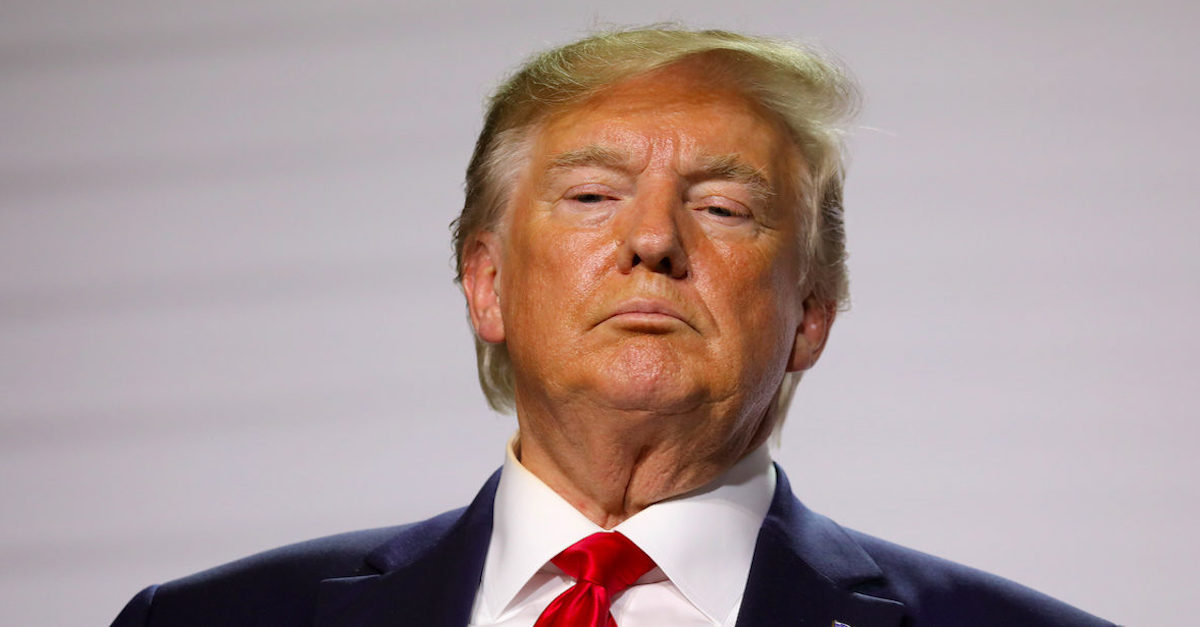
A federal appeals court on Monday ruled that President Donald Trump cannot prevent his finance firm from complying with a subpoena for his tax returns.
A three-judge panel on the U.S. Second Circuit Court of Appeals issued the ruling, which affirmatively states that a sitting president cannot claim “absolute presidential immunity” from state criminal investigatory processes, holding that the president’s accounting firm, Mazars USA, must abide by the subpoena for financial documents relating to Trump and his businesses issued by Manhattan District Attorney Cy Vance.
In a 34-page ruling, the Court affirmed a lower court’s ruling, effectively rejecting Trump’s request for an injunction that would prevent Mazars from turning over the documents.
“The President relies on what he described at oral argument as ‘temporary absolute presidential immunity’—he argues that he is absolutely immune from all stages of state criminal process while in office, including pre‐indictment investigation, and that the Mazars subpoena cannot be enforced in furtherance of any investigation into his activities,” the court wrote.
Refusing to rule on the precise nature and limitations of presidential immunity, the Court only addressed the issue based on the particular circumstances presented in the case, ruling that such immunity does not allow for the president to prevent a third-party from abiding by a lawful subpoena for non-privileged information just because of his office:
We have no occasion to decide today the precise contours and limitations of presidential immunity from prosecution, and we express no opinion on the applicability of any such immunity under circumstances not presented here. Instead, after reviewing historical and legal precedent, we conclude only that presidential immunity does not bar the enforcement of a state grand jury subpoena directing a third party to produce non‐privileged material, even when the subject matter under investigation pertains to the President.
Following the decision, Trump’s attorney Jay Sekulow said the president would be appealing the decision to the U.S. Supreme Court.
“The decision of the Second Circuit will be taken to the Supreme Court,” Sekulow said in a statement. “The issue raised in this case go to the heart of our Republic. The constitutional issues are significant.”
The Second Circuit, however, based its ruling on precedent set by the Supreme Court during criminal prosecutions of White House employees tied to the Watergate break-in and subsequent cover-up.
In U.S. v. Nixon, the high court ruled that President Richard Nixon was legally required to produce audio recordings and documents relating to his “conversations with aides and advisors,” which had been subpoenaed in connection with the criminal trial of senior presidential aides.
The Nixon Court rejected the president’s claim that the separation of powers doctrine made him immune from “a judicial subpoena in an ongoing criminal prosecution.”
The Second Circuit quoted extensively from the Nixon decision and drew several circumstantial parallels in Monday’s ruling.
“The President has not persuasively explained why, if executive privilege did not preclude enforcement of the subpoena issued in Nixon, the Mazars subpoena must be enjoined despite seeking no privileged information and bearing no relation to the President’s performance of his official functions,” the court wrote. “The Nixon Court explained that even the President’s weighty interest in candid and confidential conversations with his advisers could not justify a blanket privilege that would ‘cut deeply into the guarantee of due process of law and gravely impair the basic function of the courts.’”
11 4 19 Trump v Vance Opinion by Law&Crime on Scribd
[image via LUDOVIC MARIN/AFP/Getty Images]